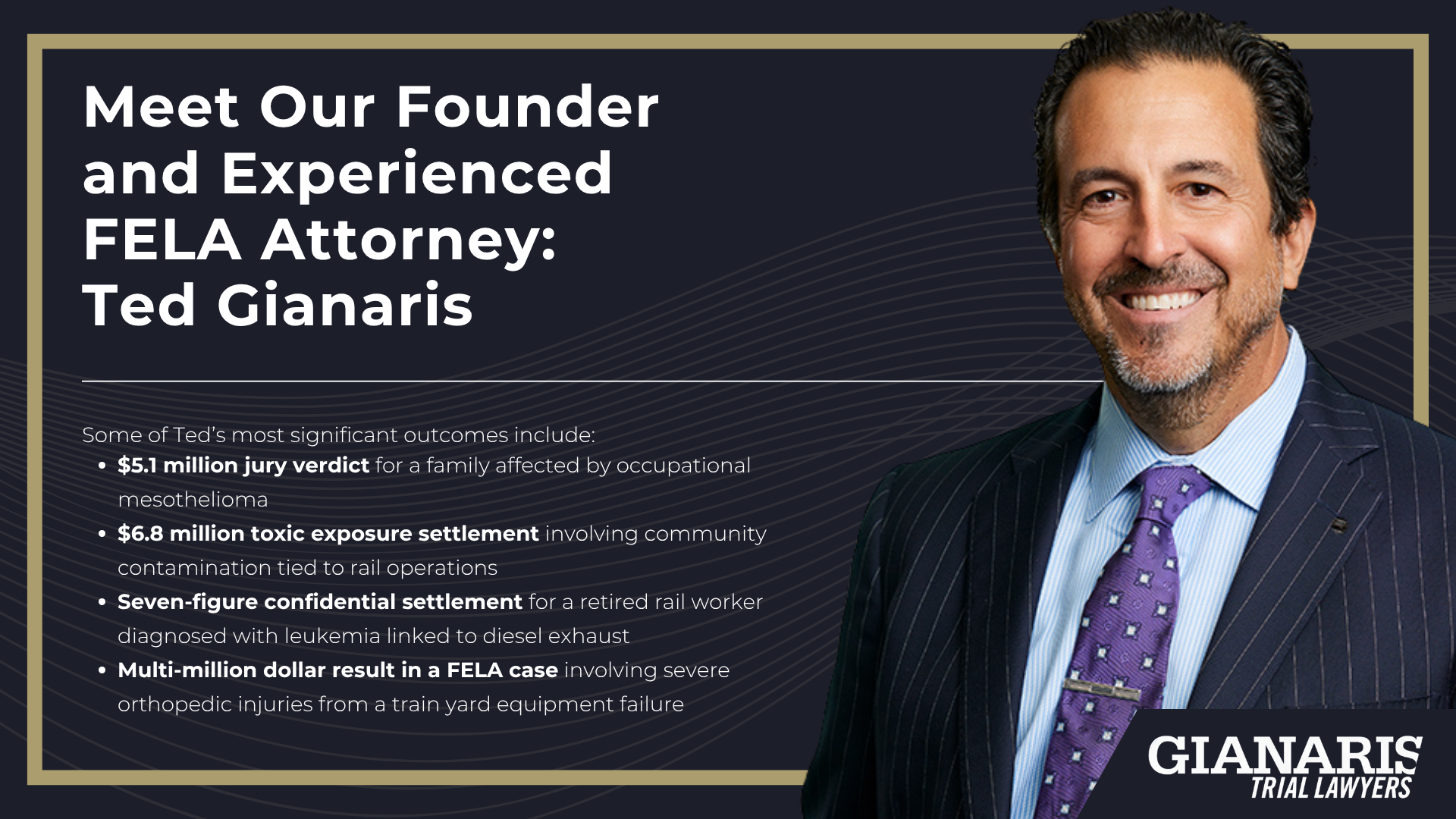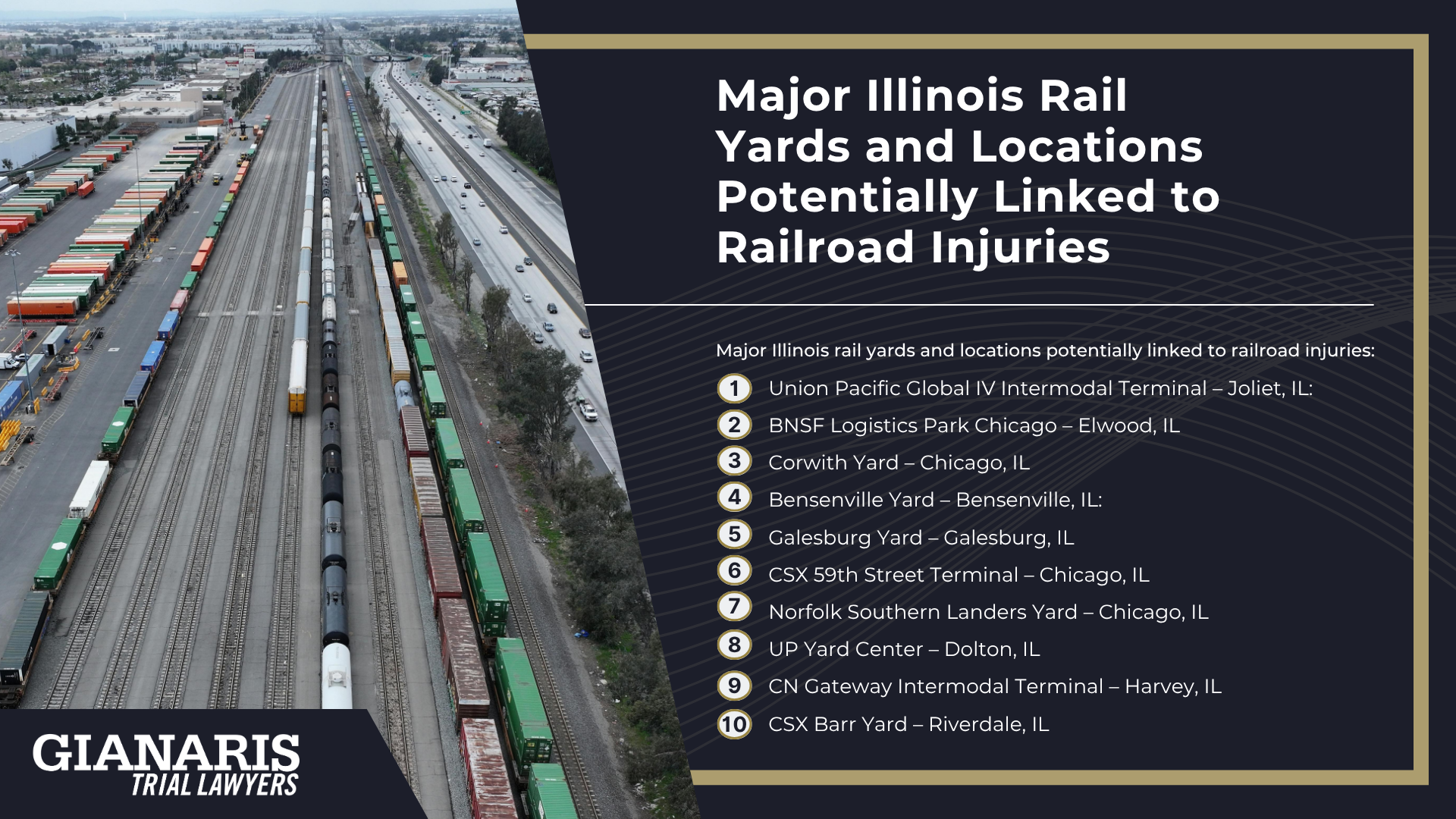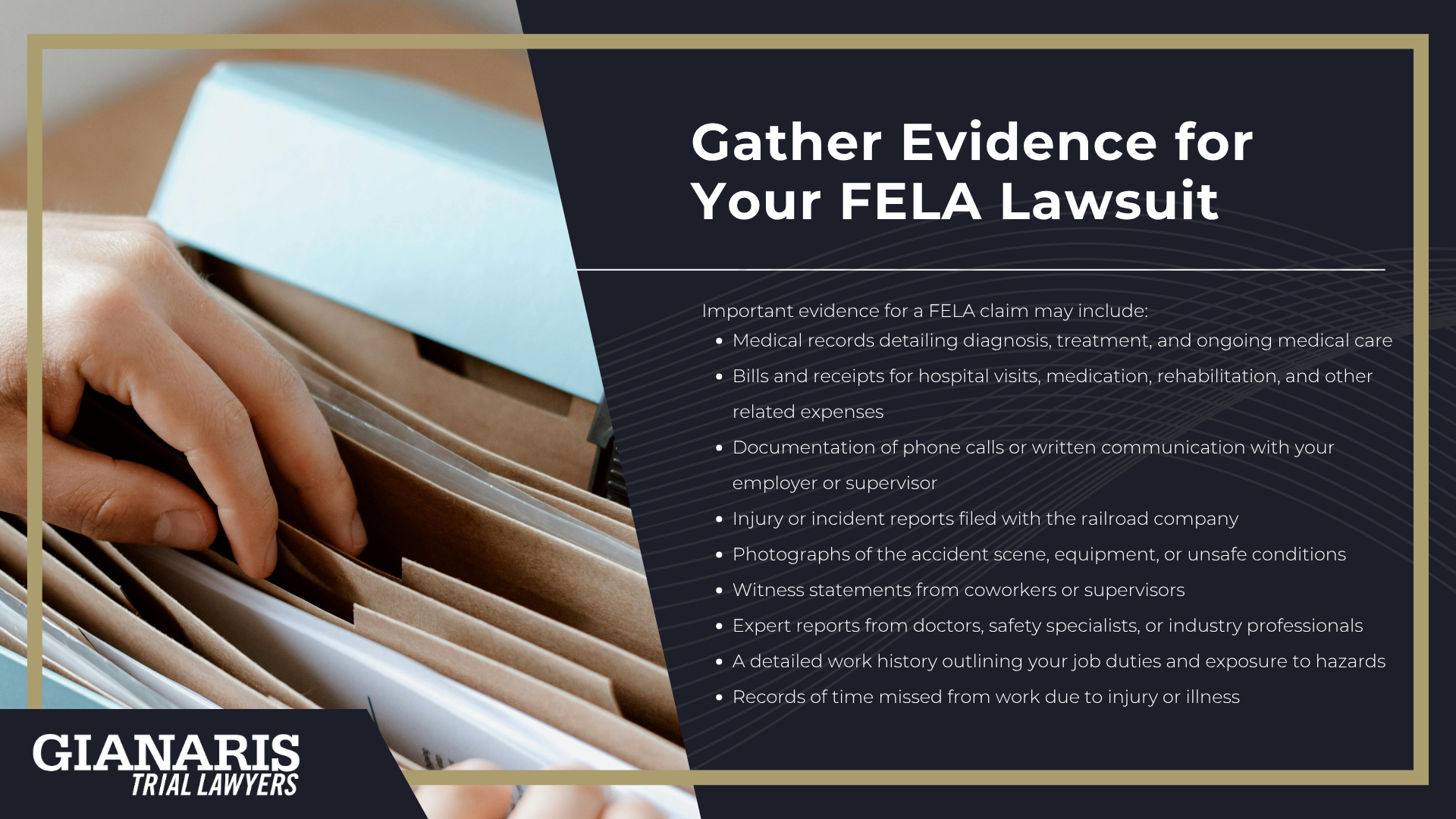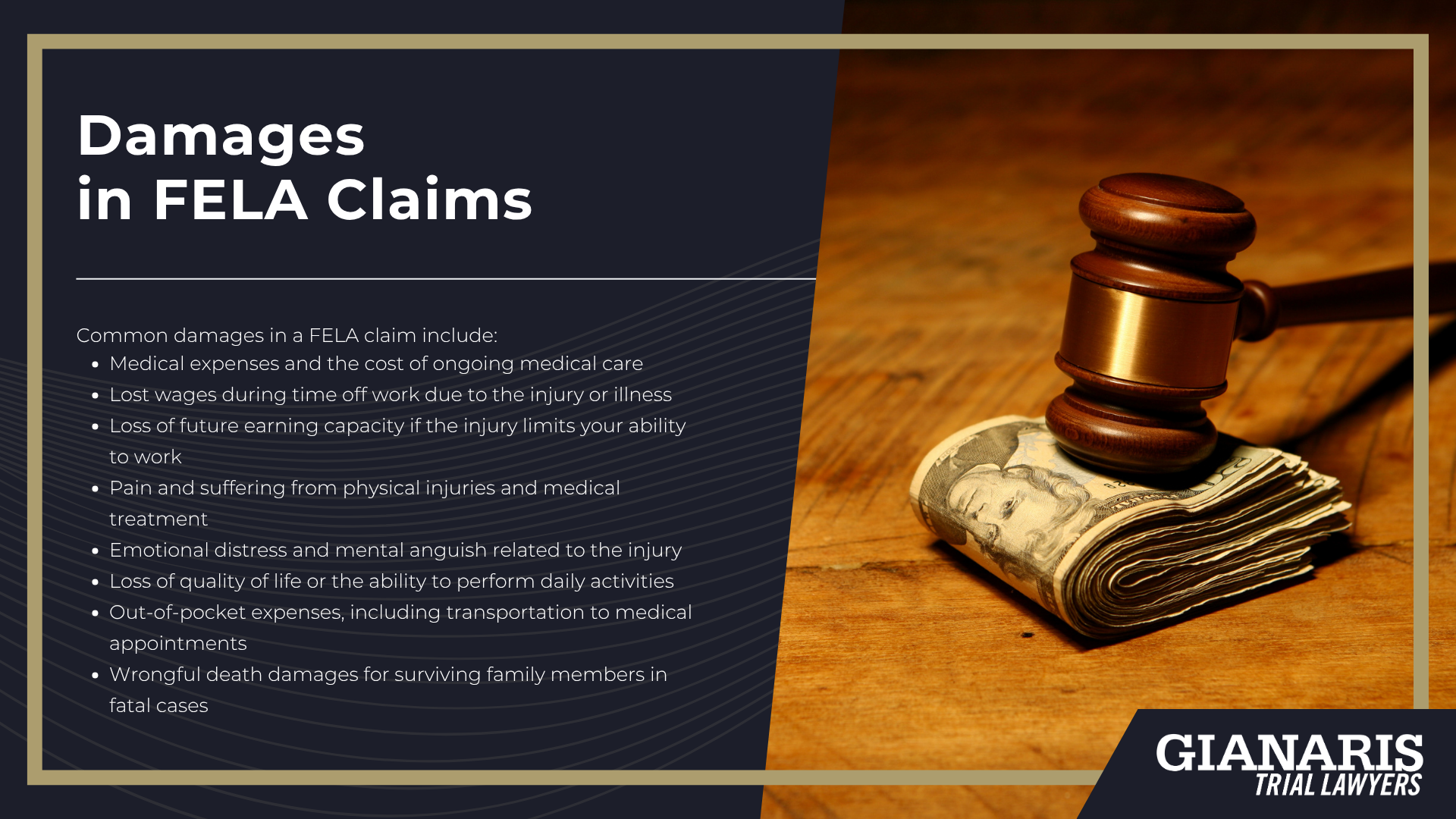The Federal Employers Liability Act (FELA) is a federal law passed in 1908 to protect railroad employees who are injured on the job due to their employer’s negligence.
Unlike workers’ compensation systems, which provide limited no-fault benefits, FELA requires the injured railroader to prove negligence on the part of the railroad company to recover compensation.
This may include showing that the employer failed to provide a safe work environment, proper equipment, or adequate training.
The law was enacted to recognize the dangerous nature of railroad work and to hold rail companies accountable when their actions—or inactions—lead to serious injuries or occupational illnesses.
FELA works in conjunction with other federal safety laws like the Locomotive Inspection Act and the Safety Appliance Act, which help establish minimum safety standards and may support a negligence claim.
If a railroad violates these regulations, it can serve as strong evidence in a FELA case.
The benefits of FELA extend beyond just the injured railroader—if a family member dies due to a fatal work-related illness or accident, their loved ones may bring a wrongful death claim under the same law.
FELA allows for more comprehensive compensation than traditional systems, including full lost wages, medical costs, and damages for pain and suffering.
These claims can be filed in either state or federal court, and cases are often decided by a jury.
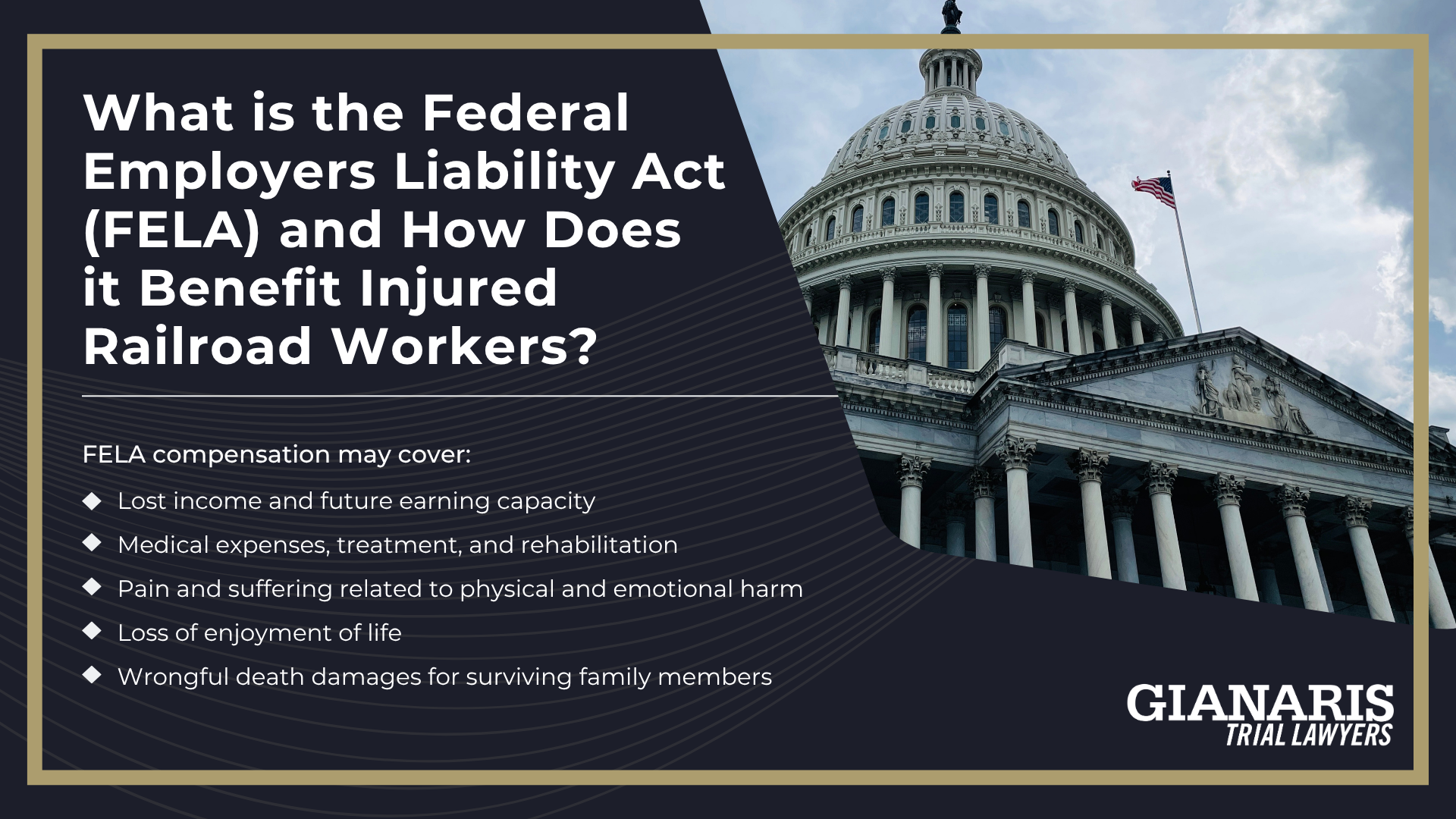
FELA compensation may cover:
- Lost income and future earning capacity
- Medical expenses, treatment, and rehabilitation
- Pain and suffering related to physical and emotional harm
- Loss of enjoyment of life
- Wrongful death damages for surviving family members
For those injured on the job or diagnosed with a work-related illness, FELA offers a powerful legal avenue to pursue accountability and financial recovery from negligent railroad employers.
What Injuries Qualify for FELA Claims?
Railroad jobs involve physically demanding tasks, heavy equipment, and hazardous materials, making serious injuries a constant risk for workers across all departments.
When these injuries are caused—directly or in part—by unsafe working conditions, poor maintenance, or a railroad company’s failure to follow safety laws, they may qualify for compensation under the Federal Employers Liability Act (FELA).
Unlike no-fault systems, FELA claims require injured workers to show that negligence played a role in their harm.
This includes both sudden accidents and illnesses that develop over time due to toxic exposure or repetitive strain.
Workers in roles ranging from conductors to machinists may suffer a wide range of conditions that are legally actionable under FELA.

Below are some of the most common injuries claimed in FELA lawsuits, along with how they typically occur on the job:
- Crush Injuries – From being pinned between railcars or struck by moving equipment.
- Amputations – Caused by entanglement in machinery, moving parts, or sudden railcar movement.
- Spinal Cord Injuries – Resulting from high-impact falls or collisions.
- Traumatic Brain Injuries (TBI) – From being struck by falling tools, slips on slick surfaces, or equipment malfunctions.
- Fractures and Broken Bones – Due to slips, falls, or impacts with heavy rail equipment.
- Burn Injuries – From hot surfaces, electrical faults, or fuel-related accidents.
- Back and Neck Injuries – Common in workers lifting heavy tools or exposed to repetitive strain.
- Hearing Loss – Caused by long-term exposure to loud engines, horns, and shop equipment without proper protection.
- Respiratory Illnesses – From inhaling diesel exhaust, silica dust, asbestos fibers, or chemical fumes.
- Mesothelioma and Lung Cancer – Often linked to long-term asbestos or diesel exhaust exposure.
- Repetitive Stress Injuries – Affecting joints, tendons, and muscles from years of physical strain.
- Occupational Cancers (e.g., bladder, kidney, leukemia) – Resulting from toxic exposure to substances like benzene, solvents, or welding fumes.
- Lacerations and Deep Cuts – From sharp tools, sheet metal, or broken equipment.
- Electrical Injuries – Suffered by electricians or mechanics working on live systems or poorly grounded machinery.
- Eye Injuries – Caused by flying debris, welding sparks, or chemical splashes.
- Post-Traumatic Stress Disorder (PTSD) – Arising from witnessing or surviving catastrophic incidents.
- Death – In cases of fatal workplace accidents or delayed consequences of occupational disease.
These injuries can severely impact a worker’s life and ability to continue employment, making it critical to pursue all available legal remedies under FELA.
What Railroad Workers are Able to File Claims Under FELA?
Railroad work takes place in dynamic, high-risk environments that include active rail yards, moving trains, repair shops, and field operations along the track.
These workplaces involve constant exposure to heavy machinery, loud equipment, high-voltage systems, and potentially toxic substances.
Whether it’s working inside a locomotive cab or repairing infrastructure in harsh weather, the physical demands and safety hazards are present every day.
When accidents occur or occupational illnesses develop, injured railroad workers have the right to pursue compensation under the Federal Employers Liability Act (FELA).
This applies across a wide range of roles within the industry, each of which carries its own set of risks and responsibilities.
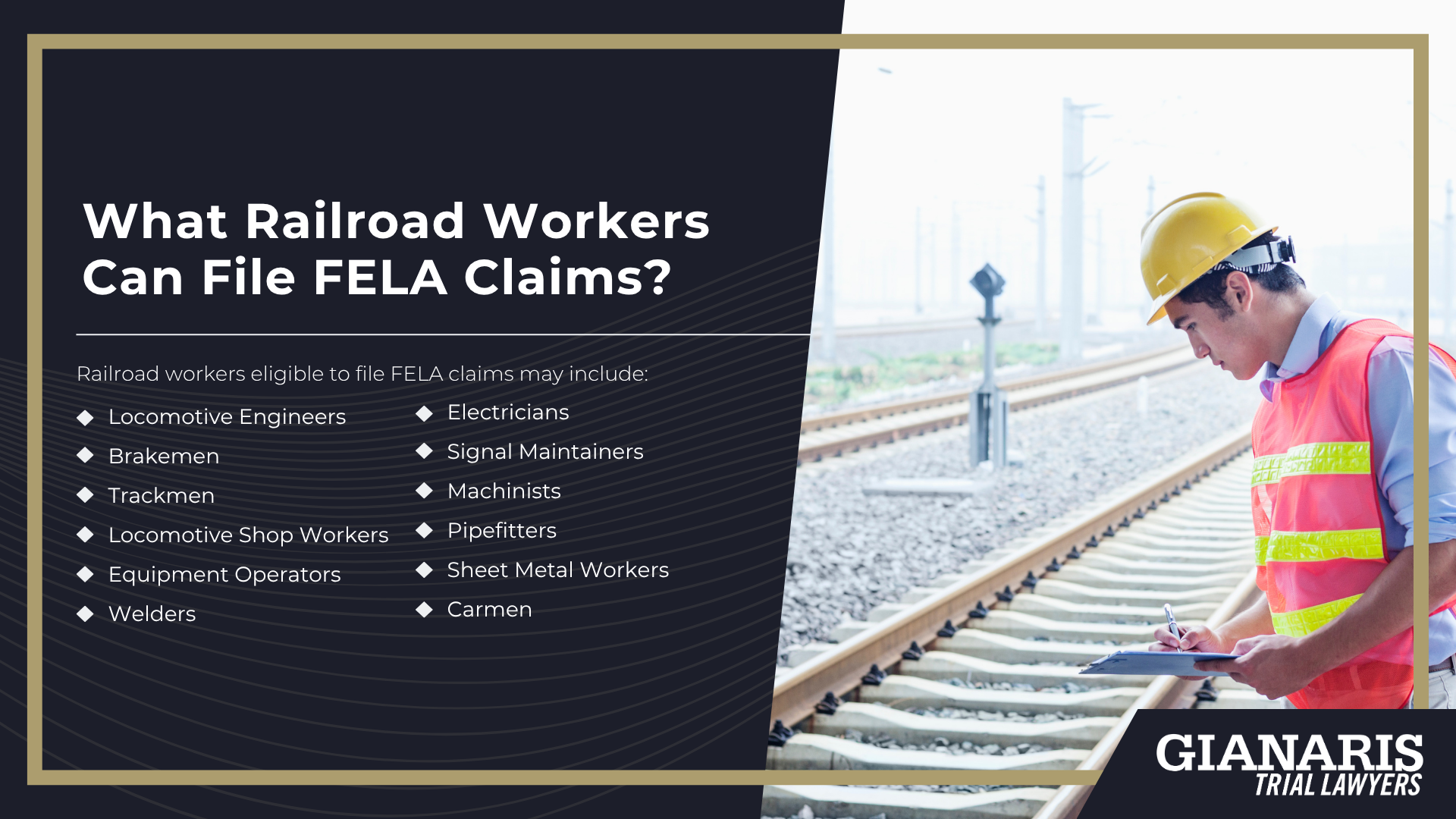
Railroad workers eligible to file FELA claims may include:
- Locomotive Engineers
- Brakemen
- Trackmen
- Locomotive Shop Workers
- Equipment Operators
- Welders
- Electricians
- Signal Maintainers
- Machinists
- Pipefitters
- Sheet Metal Workers
- Carmen
